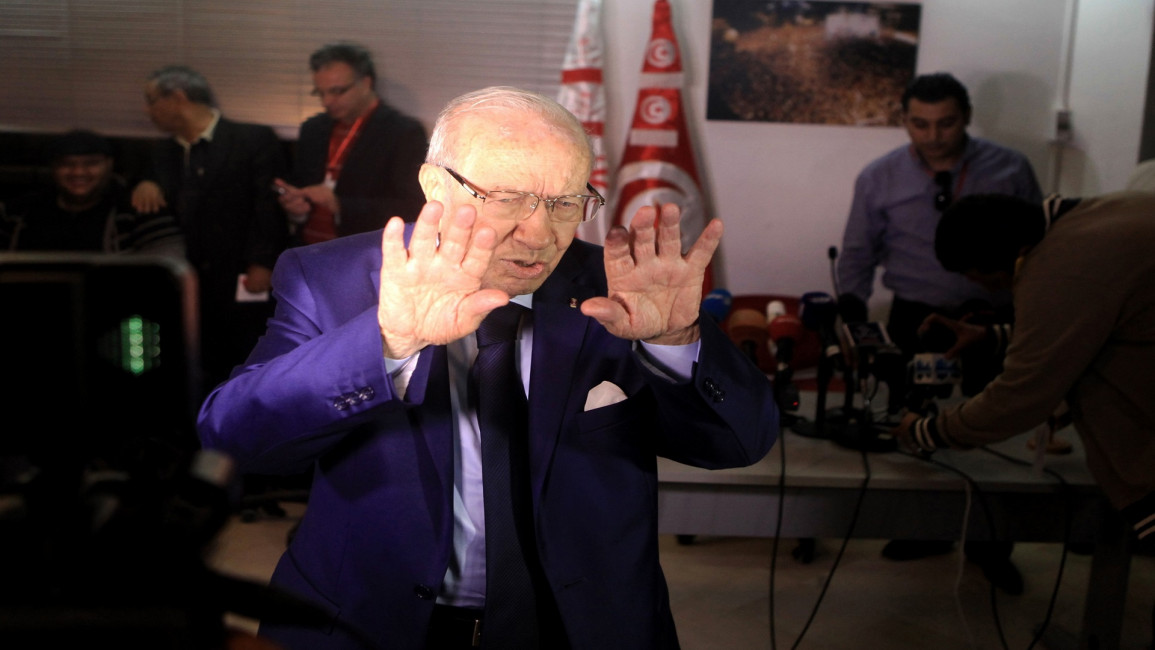
Political change comes to Tunisia through the ballot box
Elections in Tunisia have brought the changes they were widely expected to bring. The Islamist Ennahdha movement is no longer the biggest party in Parliament, Nidaa Tounes (“Call of Tunis”), a coalition of old-regime interests, is. That is a significant change. Islamists no longer have a virtual monopoly on politics, they have a serious rival for power -- with ambitious, strong leadership and broad popularity. The other secular parties have been swept aside and now have little influence.
The popular rejection at the ballot box was a shock for Ennahdha, even though there were strong indications of a shift in public attitudes towards it. Its leaders hoped this shift against them would not translate into electoral defeat, but Nidaa Tounes’s strong campaign dashed Ennahdha’s hopes.
| The popular rejection at the ballot box came as a shock to Ennahdha |
Ennahdha must now reconsider its position, and its approach to politics and government. Its leadership should honestly assess the reasons for the loss of one-third of their electoral support in three years. It needs to do this if it wants to capitalise on the opportunities open to them in the future.
After accepting the results, Ennahdha must decide what it does next. It has several options available to it. There is a possibility it could be asked to participate in the next government. But their participation should not be a mere formality, and they should be careful about which portfolios they accept and which candidates they choose for these portfolios. Their other option is to become an opposition party, which would give Ennahdha the opportunity to prepare itself for the next elections, and possibly another term in government.
The way forward
After successfully engineering an electoral upset, Nidaa Tounes must now go beyond the logic of an electoral victory and look forward, to guarantee political stability and protect the peace. It should avoid exacting revenge and decide what sort of government it wants to lead: either a broad coalition involving parties across the political spectrum, including the Islamists; or a narrower coalition , composed of parties based on similar ideological platforms, like the Popular Front. It might also opt to support a largely technocratic government.
Its decision is likely to depend on the strategy it adopts for the upcoming presidential elections, the strategic goal of Nidaa Tounes. The party leadership regards victory in these elections as a stepping stone toward a possible victory on 23 November, in which Nidaa Tounes’s seasoned leader, Beji Cair Essebsi, is himself a candidate.
Unlike the Ennahdha Movement, which did not put a candidate forward for the presidency, el Sebsi wants to control both executive branches to guarantee he can steer the country in a new direction. Because of this, Nidaa Tounes may postpone discussions about the formation of a new government until after the presidential elections. This means the makeup of the next government might be linked to the parties’ attitudes toward Essebsi's candidacy. Many parties have put forward candidates for the presidency.
 |
|
| Emad Hajjaj [al-Araby al-Jadeed] |
Tunisian voters also sent a message to other parties, on the left and the right. The secular, centrist and pro-economic liberalisation Free National Union Party did very well, though its founder, Slim Riahi, president of the famous Club Africain, has provoked concerns about the role of money in politics.
Meanwhile, the political left, with its reformist and radical wings, failed to gain significant support in the electorate. It must also seriously examine its future in politics.
In a region long accustomed to phoney elections, these were real, and free from political violence. The political elite has demonstrated its willingness to accept the election results, regardless of what they might be. Tunisia has once again proven it is moving toward the establishment of a young, promising, and effective democracy.
This is an edited translation from our Arabic website




